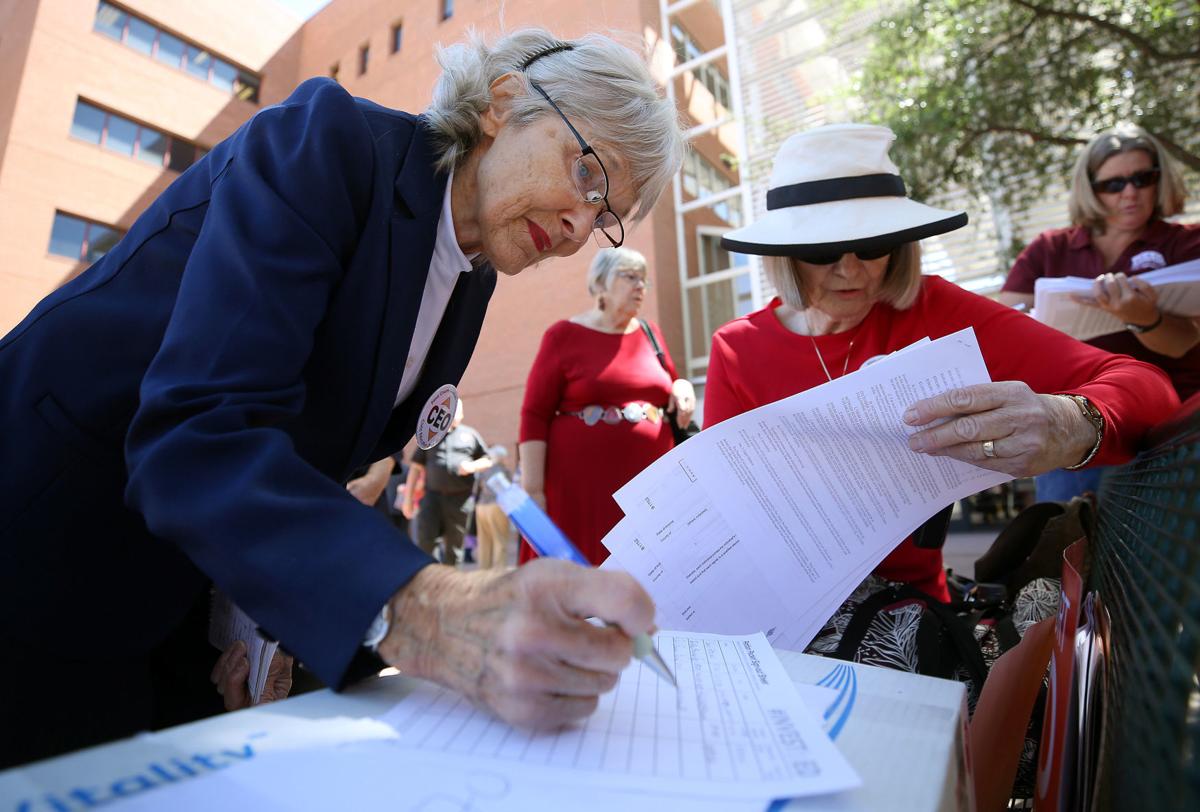PHOENIX — The attorney for the Arizona Republican Party says a system that allows people to sign petitions online — the same one used by political candidates — is “highly susceptible to fraud.”
The new legal filings by Dennis Wilenchik come as the state GOP is urging U.S. District Court Judge Dominic Lanza to reject a bid by initiative organizers to use the existing E-Qual system to finish getting the signatures needed to put their proposals before voters in November.
In essence, E-Qual allows anyone with an Arizona driver’s license to “sign” petitions online by providing certain information. That includes the name, date of birth and the driver’s license number or, in the alternative, a voter ID number and last four digits of a Social Security number.
“The risk of fraud in that system is obvious,” the legal briefs read.
“The system is premised on the false notion that only the voters will have access to their own driver’s license number,” it continues. “But as any good private investigator knows, a person’s name, address and driver’s license number are all public records at the DMV.”
But Wilenchik told Capitol Media Services that the party’s bid to block the use of E-Qual for initiatives — even just for this year due to the COVID-19 outbreak and the stay-at-home order by Gov. Doug Ducey — does not mean that the Legislature is wrong in allowing candidates to use it. He said it’s a matter of scale.
Someone seeking statewide office needs at least 6,500 signatures. The threshold for legislative candidates depends on the district, with the requirement as low as 244.
By contrast, putting a statutory change on the ballot this year requires 237,645 valid signatures.
And that, Wilenchik said, justifies the decision by lawmakers to limit the use of E-Qual to candidates and not to ballot measures.
“The reality is, the Legislature has spoken on it,” he said.
“It’s not an accident,” Wilenchik continued. “And therefore you should give great deference to the Legislature’s reasons unless you have compelling reasons to find that they had no basis to do so.”
It is precisely that question of compelling interest that is being presented to Lanza at a hearing this week.
In his own legal filings, attorney Jim Barton said the two petitions drives he represents started gathering signatures before there was a pandemic, with circulators approaching voters and asking them to physically sign petitions and circulators then required to sign a sworn affidavit that they witnessed the signatures, all part of efforts to prevent fraud.
All that changed with COVID-19.
“The requirement that electors sign the petition in the presence of the person who is circulating the petition cannot be accomplished during the pandemic,” he told Lanza.
Barton said one circulator who wants a measure on the November ballot “is required to literally endanger her life in violation of public health warnings and stay-at-home orders in order to exercise her free speech.”
Barton said there is no reason why initiative circulators, exercising their First Amendment rights to seek to put issues on the ballot, cannot use the system lawmakers put in place to be able to gather their own signatures for nominating petitions.
“The state’s specific purpose of preventing fraud can be accomplished without denying plaintiffs access to the E-Qual system,” Barton wrote.
Wilenchik, on behalf of the state GOP, told Lanza to reject claims of the security of the system.
“The E-Qual system has never undergone a full third-party security review, because the number of signatures that are actually collected using E-Qual has historically been very small, on average of between 2% and 3% of all signatures collected,” he said.
More to the point, Wilenchik said Lanza should defer to the decision of lawmakers to authorize E-Qual only for candidates and not for initiative petitions.
“It’s not for the courts to tamper with,” he said, saying that the Legislature had a “rational basis” to limit the use of the online system to themselves and other candidates.
“The number of signatures required of candidates is disproportionately different than what you need for these ballot measures,” Wilenchik said.
“So there’s a lot more ability and susceptibility to obtain that kind of massive number of signatures wrongfully or fraudulently to make the ballot.
“It’s really a different deal when you’re dealing with candidates versus these broad measures and the requirement for the amount of people to sign up.”
Lanza has separately denied a bid by Senate President Karen Fann, R-Prescott, and House Speaker Rusty Bowers, R-Mesa, to intervene in the case.
In their own legal filings, their attorney argued they have a legal right to make their own arguments to Lanza about why Barton’s lawsuit should be dismissed.
They noted that, in filing the lawsuit, Barton named Secretary of State Katie Hobbs as a defendant. And Hobbs has said she will not oppose the bid to let already-existing initiative drives finish getting their signatures online.
But Lanza, in his ruling, pointed out that he already has allowed Attorney General Mark Brnovich to intervene in the case to defend the laws limiting E-Qual to political candidates, rejecting the claims by Fann and Bowers that they deserve a seat at the defense table because Brnovich may not “make the same arguments.”
“A mere disagreement over the best way to approach litigation is insufficient to meet the ‘compelling showing’ necessary to demonstrate inadequate representation when interests have aligned,” the judge wrote.





